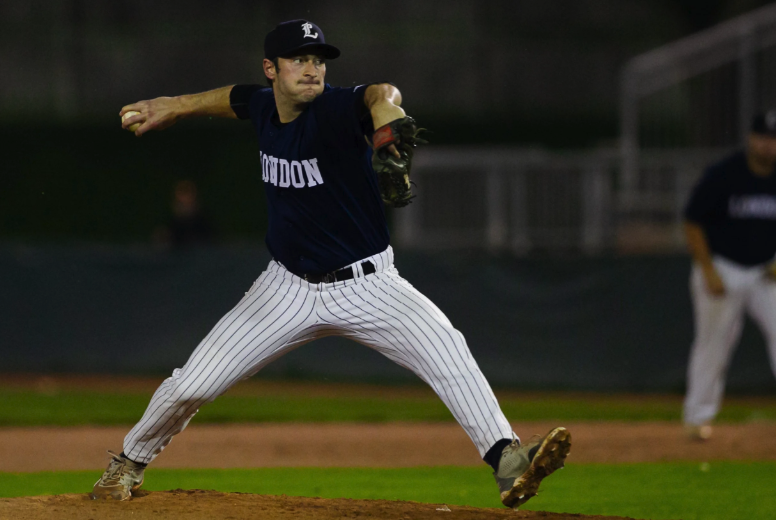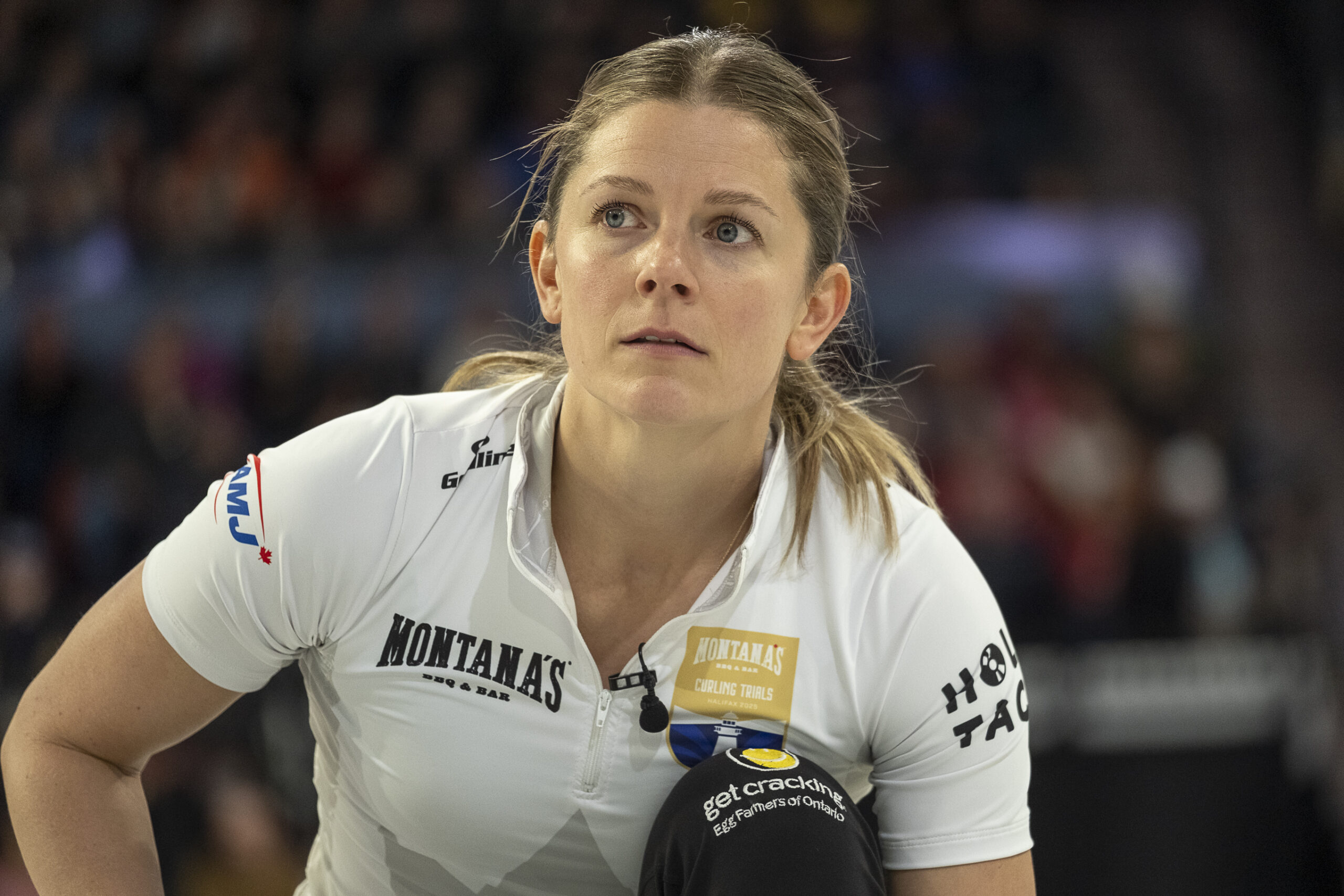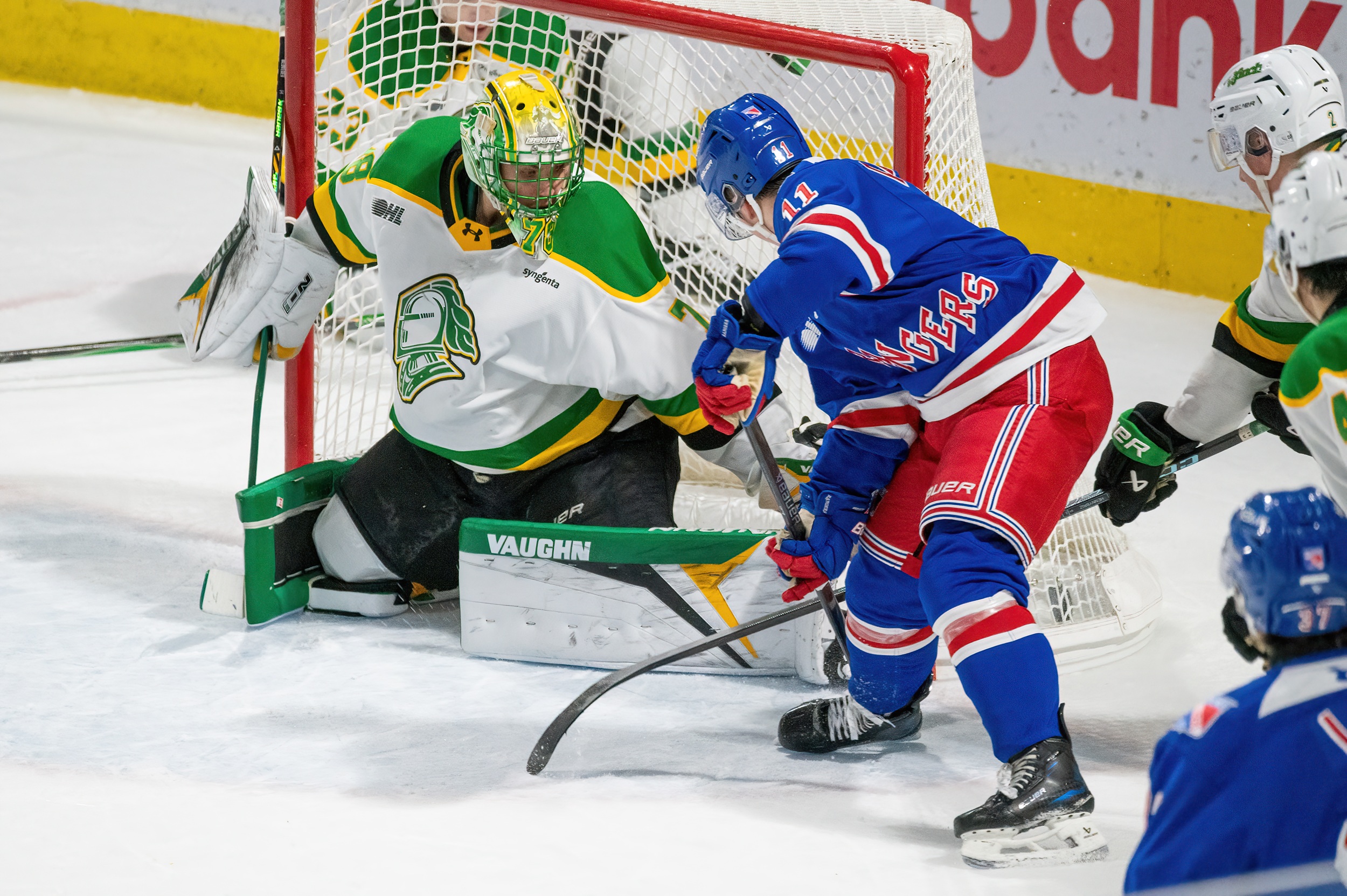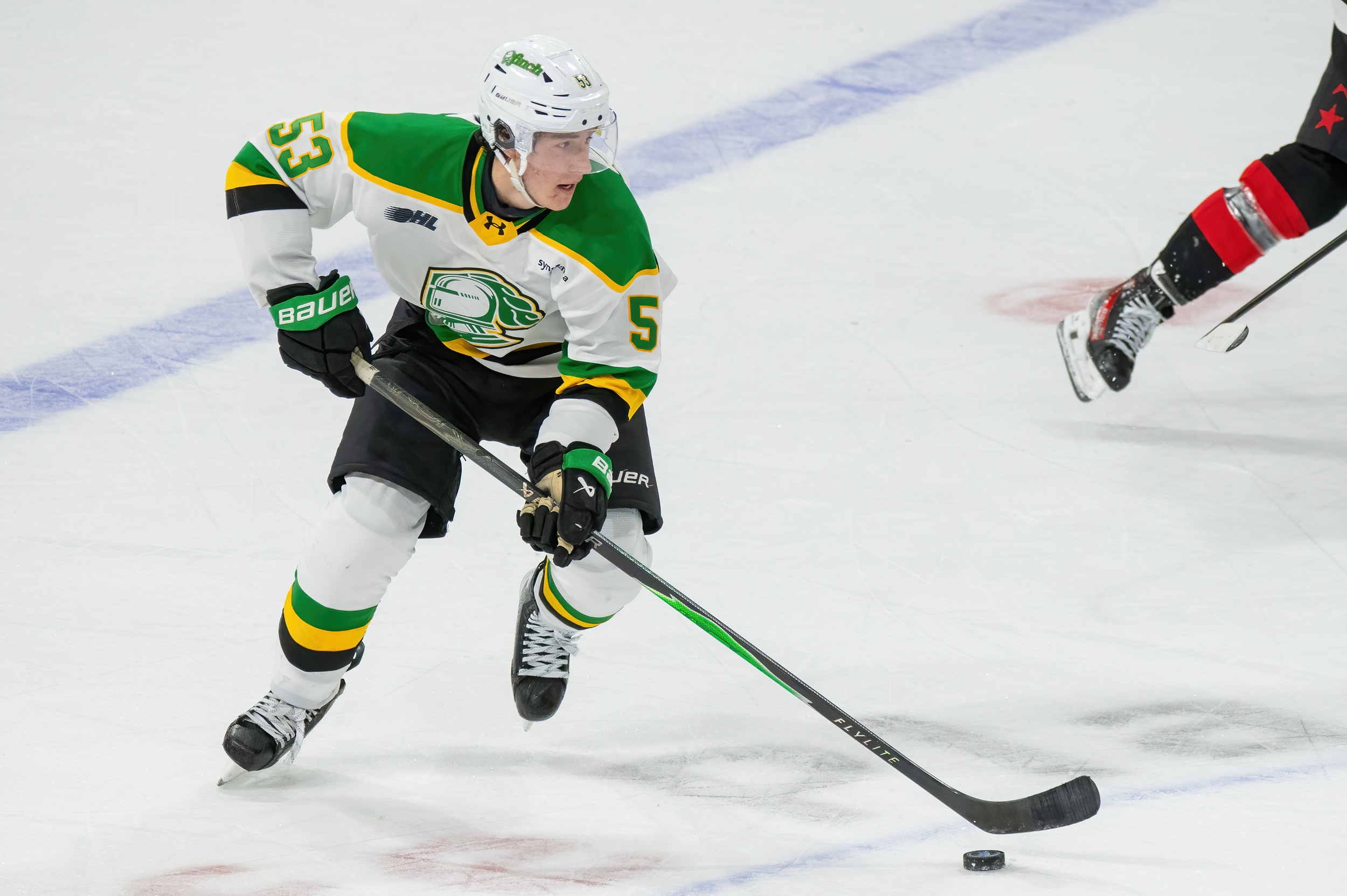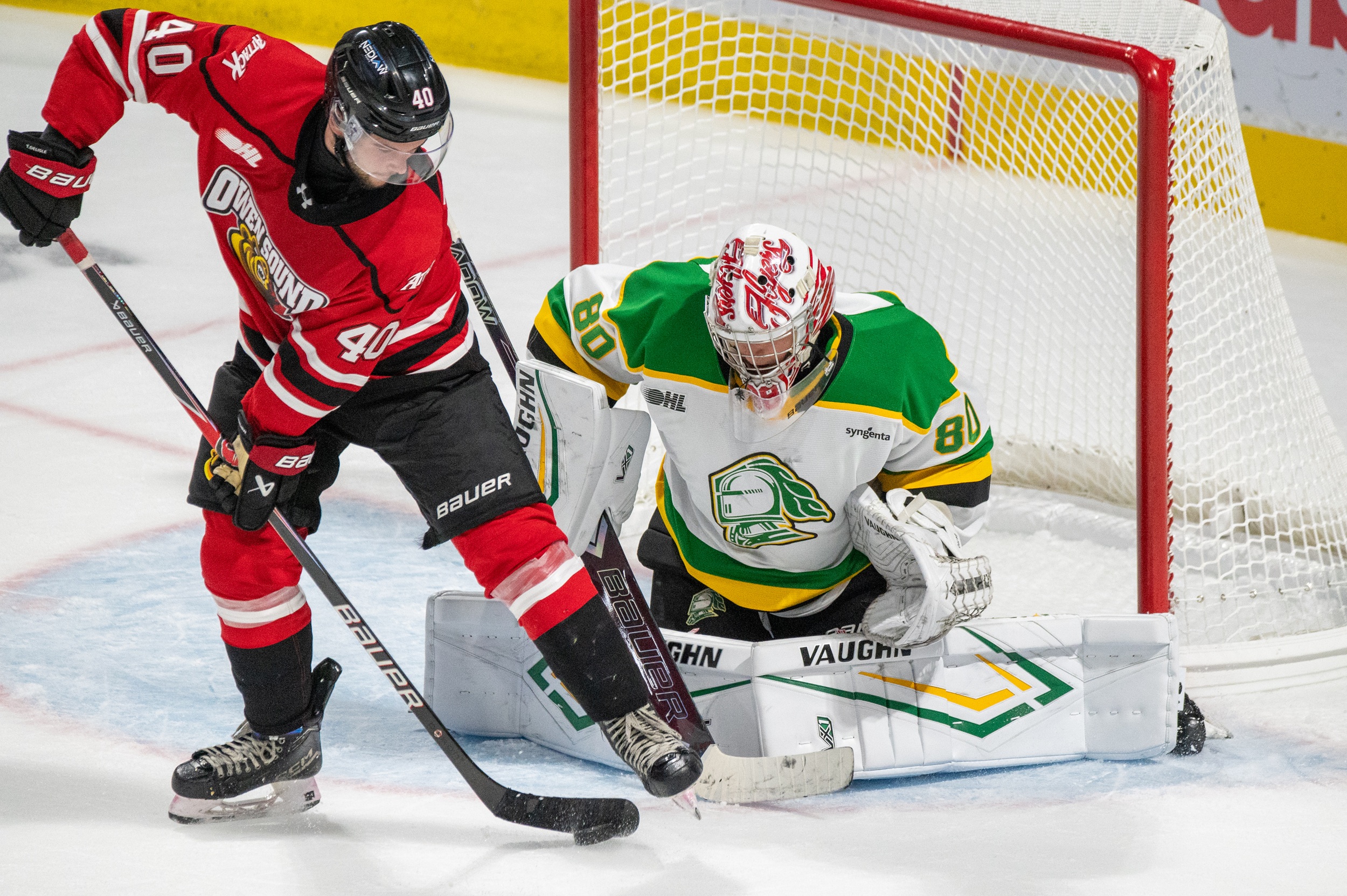|
Getting your Trinity Audio player ready...
|
Owen Boon, a First Team All-Star in 2023, has been the leading London Majors arm for years, including helping the team win two IBL titles. But has he thrown his last pitch?
Owen Boon is running out of time.
“Being there. Present. It counts. You miss out when you’re not at that ballpark,” said the London Majors ace pitcher.
It’s a reality of a league like the IBL, where players’ day jobs and family commitments oftentimes compete with time at the ballpark. For Boon, who lives and works a corporate gig in Toronto, the one-way, two-hour – always-rush-hour – commute meant that this year he was often only around the ballpark on days he pitched. Not ideal for a team leader.
“I would have liked having more time to be around the guys, time where I didn’t need to be as focused as a starter, just enjoying being at the ballpark,” he said. “Usually when I’m pitching that day, I’m not a lot of fun. I’m more focused on what I’m doing. I’m less relaxed.
“I would have liked time to be there as a resource for guys.”
But there’s more than just the day job. Now 30, Boon has found himself missing out on big events with family and friends over the years. Add up the demands of the ballpark, and so many summer days and nights are gone in the blink of a Boon four-seamer.
To succeed at this level, the game demands your time – often at the expense of others in your life.
“Everybody who plays in this league, we have lives outside of this game. This league is quite busy. If you’re doing everything, you’re basically at the ballpark five nights a week,” he said. “I don’t want to lose or drift away from important relationships in my life. You start to think there are bigger things outside of baseball and I’ve done it enough. So that definitely weighs on my mind.”
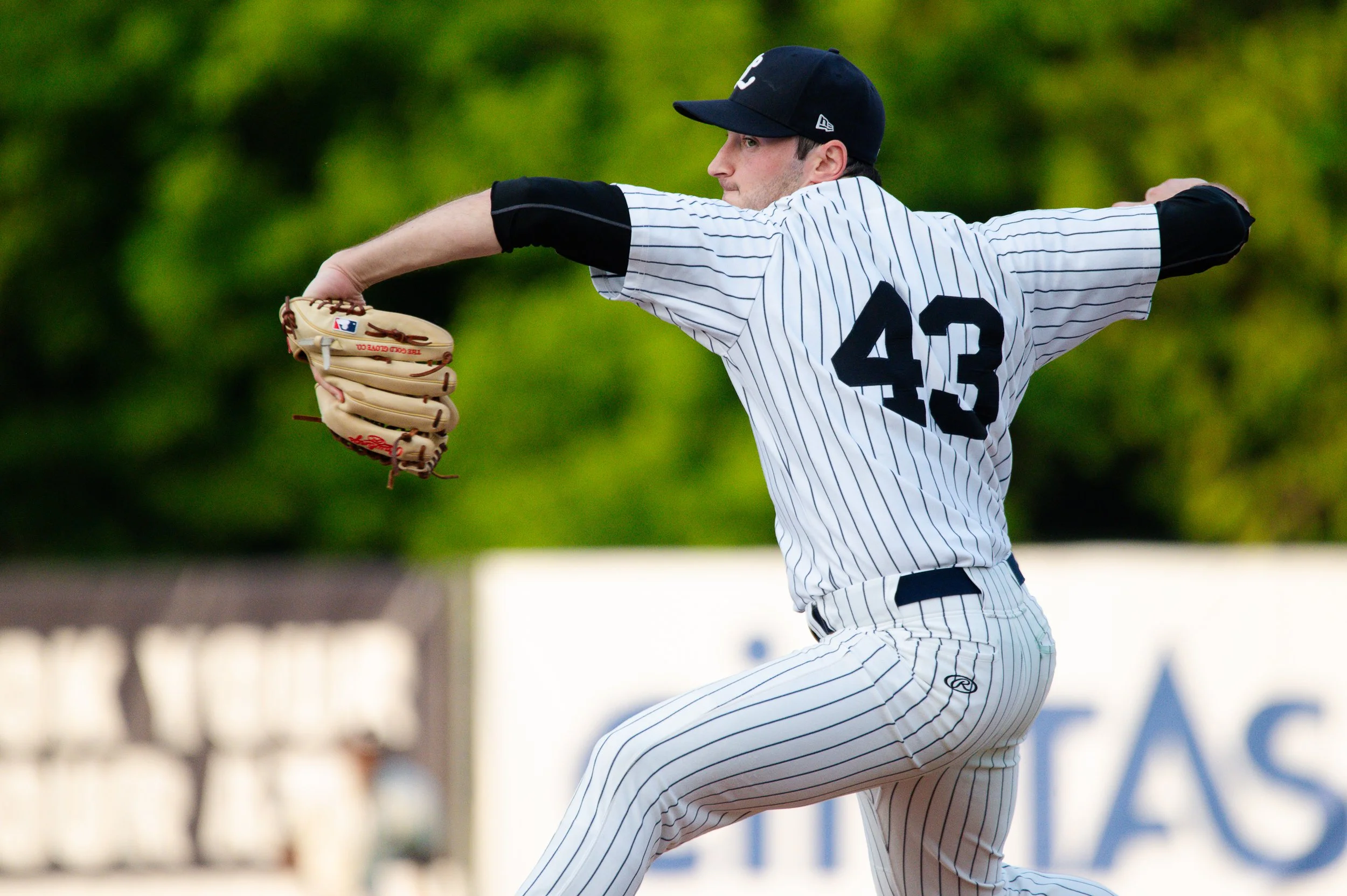
* * *
Missing bats. In a league loaded with hitters taking cuts within, shall we say, some rather friendly confines in out-of-town ballparks, missing bats becomes the name of the game.
And in recent years, none have been better at that than Owen Boon.
“I’d be lying if I said I don’t love it. It’s the competitor in me that says, ‘You’re not going to beat me. You’re not going to hit this stuff,’” said Boon, named last week to the IBL’s First Team All-star squad, along with batterymate Eduardo de Oleo.
“That’s my default mentality when I step out on the mound. I’m a nice guy outside of being on the pitcher’s mound. But when I step on that rubber, something takes over. In my head, my internal dialogue says anybody who steps into the box isn’t going to touch my stuff.”
In 2023, Boon went 3-4 with a 3.46 ERA in his 11 starts while striking out 104 against just 14 walks over 72 2/3 innings. That strikeout total led the league by more than 20 Ks.
It takes gas to hit those numbers, but Boon stresses there’s a lot more to his K game.
“There are different ways to get strikeouts,” he says. “I can overpower somebody – which is fun. But then there’s also ways to get strikeouts where I sequence well and set the batter up to swing and miss at my pitch. That way, I win the mental battle, too, which is also very rewarding. “When you throw a 2-1 changeup and they swing thinking that it’s a fastball, especially if that pitch would be called a ball … but they still swing because they were so geared up for it, that’s a great feeling. It’s all the game within the game that I like.”
* * *
The Forest City London native didn’t develop as a pitcher until his late teens when he started taking the mound consistently for the London Badgers. Even though he didn’t stand out right away, he grew into his talent as he pitched more and more for local competitive teams.
“I started throwing harder, then noticeably harder than the other pitchers. I started having a lot of success.”
The opportunity to “play ball, get a good education, and not cost my parents an arm and a leg” kept Boon home to attend Western University (where his parents both work). A tryout with the Mustangs impressed coaches when his fastball popped the glove at 90 mph.
“I had no idea I could do that. But that’s when I started taking pitching seriously. That’s when they told me, ‘You’re just going be a pitcher from now on,’” he said.
“Western is where the focus on pitching came from. It was the first indication to myself that I’d be successful at a higher level, that maybe my horizons had expanded. It was definitely eye-opening.”
After his first year as a Mustang in the Ontario university circuit, Boon pitched for the St. Thomas Tomcats’ junior team (where he sported a 0.50 ERA that summer). It was during that stint when he caught the eye of Roop Chanderdat, the Majors’ manager and co-owner. Yet, it wouldn’t be until after Boon’s third year with Western that he first took the mound for the Majors in the summer of 2014.
The following year, Boon offered a preview of what the league was in for when he pitched in 11 games in his first full season, starting three, and posted a microscopic 1.80 ERA in 35 innings. That number would have led the league had he pitched a few more innings to qualify.
His continued improvement even earned him a shot in pro ball, where he had a stint with the Trois-Rivieres Aigles of the Can-Am League. Since returning to pitch full-time for the Majors in 2018, Boon has been one of the most dominant pitchers in the league.
“Owen is the best pitcher in the IBL for the last three years – Canadian, import, doesn’t matter. He is the best,” Chanderdat says of his ace.
The longtime coach has run some great arms out to the mound during his time as Majors bench boss. And while he can cite several great runs from pitchers, or even full seasons, none, he says, have done it better or longer than Boon.
“Look up ‘warrior’ in the dictionary. You see a picture of Owen Boon,” said Chanderdat. “Every time you think he can’t top himself, he goes out there and does it.”

* * *
Workhorses don’t just happen.
“Here’s a guy that puts in the work,” Chanderdat said of his top-of-the-rotation staple. “It’ll be January and he’s throwing indoors and hitting 90 mph. Sometimes I need to remind him that spring is still a few months away.”
Having wrapped up his ninth season this summer, Boon says he feels better than he did before making his debut in 2014. He attributes much of that to maintenance and that pre-hab routines he’s incorporated into his life to preserve the vitality of his right arm.
“I don’t know if my arm has gotten stronger. I am throwing harder now, more consistently, and certainly I’ve added on some bulk over the years. But I’ve just gotten a lot more efficient in my mechanics,” he said.
“When I think how I used to throw when I was raw, in my early years at Western, and compare it to how I throw now, I was a lot wilder then. I was pulling off the ball more. Over the course of time, I’ve just gotten more comfortable with my mechanics and discovered a composed, repeatable delivery. I throw my hardest when I’m nice, easy, and free. That has helped me be more efficient and contributed to a slight bump in velocity.”
To maintain efficiency this season, Boon dropped from five pitches down to four in his arsenal (a four-seam fastball, changeup, curveball, and cutter – leaving the two-seam fastball behind).
Each, he says, he can confidently throw for strikes in any count. That’s a huge advantage in the Intercounty Baseball League.
“If you can throw 85 mph, throw two pitches for strikes consistently, and can mix those pitches in and have the confidence to throw them in any count, you should have fairly good success in this league,” Boon explained. “If you’re sitting at 80-85 MPH and below, then you need three pitches you can throw for strikes. You don’t need swing-and-miss stuff, but you need stuff you can throw on any count to get yourself back in it or get hitters off balance.”
Boon’s pregame warmup involves Plyo balls, arm bands, rotator exercises and sprints. He combines that with his day-to-day care of rest, hydration, and anti-inflammatory foods to bounce back quick, especially during the playoffs.
“You have to look down the road and prepare for what could be to come.”
Take that Thursday night opener in this year’s playoffs, for instance.
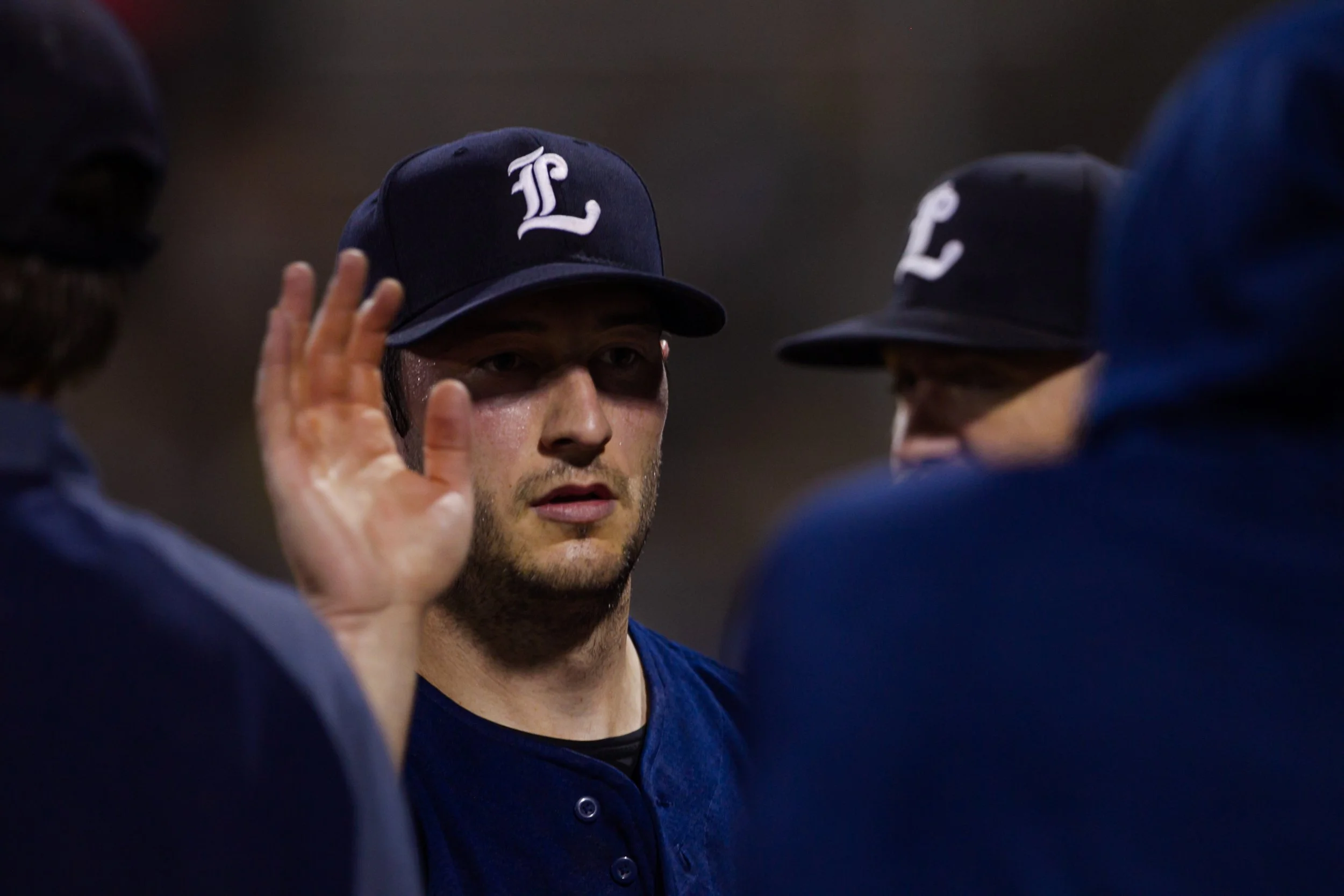
* * *
On Aug. 24, Boon threw four innings (but just over 30 pitches) in Game 1 in Kitchener against the Panthers before rain halted the action. The game was suspended and scheduled to be completed back in Kitchener that upcoming Sunday – prior to Game 3.
“That rainout really made things interesting. There were a couple of different scenarios that could have played out where I’m going to be on short rest or be extended. So, I used every opportunity leading up to those days to make sure I was ready to handle it,” Boon explained.
“It’s all about being mentally prepared and understanding what the situation is, just being diligent. That’s a huge separator between the IBL and pro ball. It’s that proactive maintenance and focus about what’s my next step, when do I have to be ready to go next – and making sure you’re ready for it.”
After the Majors dropped Game 2 in London the next night, Boon returned to the mound and pitched the remaining five innings of the suspended Game 1 on Aug. 27 back in Kitchener to complete a London win – evening the series at one game apiece.
And then he came back out and threw the first four innings of Game 3. The Majors won that one, too, but lost Game 4 back in London. On Aug. 31, a week after the series had started, Boon was back out there for the winner-take-all Game 5. He threw an eight-inning complete game (125 pitches) as the Majors fell just short, 5-4, to bow out of the playoffs.
For the series, he was officially 1-1 with a 2.14 ERA in his three starts while striking out 26 against six walks over 21 innings. His total pitch count was 309 over the eight days.
At this level, there are no teams of physiotherapists and nutritionists waiting for you after the game – “it’s all on you,” Boon said. “I’m very fortunate for my Kinesiology degree so I can have a base understanding of this kind of stuff to help keep myself in decent playing shape over the course of the years, especially as I get older.
“When I’m training, when I’m playing, I’m thinking about pitching from a Kin standpoint,” he continued. “How do I train properly? How is my body moving? How is it feeling? What do I need to do to address certain things? My Kin background helps because I apply it daily. I can self-coach myself a bit.”

* * *
Taking stock of the last season, Boon has obvious places to look. The statistics show him as a team leader and among the best pitchers in the league. But as he’s aged, it’s the intangibles that have taken on additional importance to him.
“Statistics-wise, I had a great season. But I could have done more for the team,” he said. “I could have been there more to be a contributing factor to the overall team chemistry.
“I look at how I contributed, not just as a player, but as a veteran, as somebody who’s been around the league for a while. How did I help make the guys around me better, more comfortable on the field, in the clubhouse? Did I help them bring more of themselves to the ballpark and create a cohesive unit? In my experience, the teams with that greater sense of camaraderie usually are the ones that have those special kinds of seasons. You’re all united with a common goal. It’s important to have fun with each other, be loose and relaxed, but still focused. In baseball, in particular, you get those teams that are dangerous because they’re confident in themselves.”
On the field, this was not the year anyone in the organization wanted – certainly, back-to-back-to-back championships was a monumental goal, but it was still the goal.
“I found myself being frustrated a lot more this year,” Boon said. “I felt like I had a lot more responsibility. I was proud of my ability to be consistent every time I went out to the mound. I was happy that I was able to have a similar season as I did last year in terms of strikeouts and ERA. The wins weren’t there, but that’s not a big deal for me.
“But the year was blanketed with like a layer of frustration because, obviously, the regular season and playoffs didn’t really pan out the way we wanted it to. Expectations have been set, and falling short of those is something I have a tough time dealing with, especially when we lose to teams we shouldn’t lose to, especially when we give away games late in the season.”
Beyond the wins and losses this year, Boon’s life inside and outside the game tended to diverge more often. That kept him away from the park and his teammates more than he would have liked.
His manager understands.
“It’s hard to be a leader when you’re not an everyday player,” Chanderdat said. “It’s hard to be a leader when you’re not able to be around the guys all the time. But Owen manages it; he’s still one of the core guys that his teammates count on.”
As young as Boon feels, it’s hard for him to believe that he’s looked at as one of the older guys on the team. It feels like yesterday he was just a young kid in the clubhouse.
“Younger guys will come up to you and ask about advice about baseball, or how to manage pressure, or how to manage coaching expectations. Sometimes guys want to talk baseball. Sometimes it’s life related. That’s the thing about being there for the team, picking each other up, staying beside each other when somebody’s going through a tough time at home or at the plate. That’s exactly what I would have liked to contribute more of this year.”
Returning to the Majors has been a year-to-year decision for Boon. Last offseason was the closest he came to calling it a Majors career. With the sting of the season still fresh, he’s leaning that way again.
“I have told people that this was my last year. Losing makes it easier to make that decision. The overall frustration of this season makes it easier to walk away from,” Boon said. “But would I say that I’m done done with baseball? Probably not. I’ll do something somehow.”
Don’t take that to mean coaching, however.
“Coaching would be fun, I think. But it would also drive me mad,” he laughed. “I have so much nervous energy when I’m watching games that I’m not partaking in. I enjoy having control over the game. So, it’s very hard for me to let go and let other people take the wheel and for me to be an observer.”
As the season fades, and winter’s chill arrives, the workhorse’s mind has yet to fully finalize his plans for next spring.
“In terms of next year, and what my plans are, I’ve got nothing right now. My default is that I’m probably not going to play next year, but who knows. Time can change things very quickly.”

